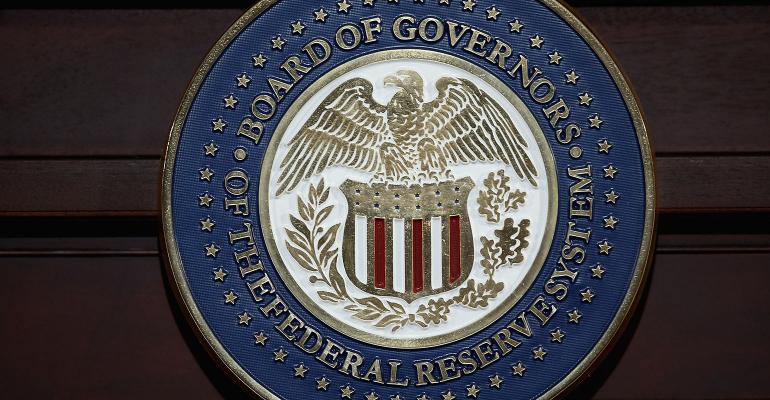By Dana El Baltaji and Ahmed A. Namatalla
(Bloomberg) --Emerging-market stocks and currencies were poised for the biggest drop in a month after the Federal Reserve combined an anticipated interest rate increase with a surprise signal it will be more hawkish than expected next year. The dollar climbed to the strongest level since 2003.
“This is a Fed that could be tighter than we thought,” said Mohamed El-Erian, the chief economic adviser at Allianz SE and a Bloomberg View columnist. “That’s what really moved the market.”
The Federal Reserve boosted borrowing costs by 25 basis points and forecast a steeper path in 2017. That could spell trouble for emerging markets as higher dollar rates reduce the appetite for riskier assets. Policy makers in Saudi Arabia, Qatar, Kuwait, the United Arab Emirates and Bahrain raised interest rates since the Fed’s announcement on Wednesday.
Bloomberg’s Richard Breslow: The MSCI emerging currency index has given up the ghost after trying to claw its way back above the 200-day moving average. Its Fibonacci retracement chart has gone from looking cautiously optimistic to a classic fail.
Markets
- The MSCI Emerging Market Index fell 1.6 percent as all but one of the 10 industry gauges fell
- The MSCI Emerging-Markets Currency Index declined 1 percent
- Turkish, Indonesian government bonds led declines across dollar-denominated emerging debt, with the yield on 10-year bonds rising 21 basis points to 6.01 percent and 4.52 percent, respectively. Indonesia’s central bank kept interest rates unchanged
- Yield on South Africa’s local-currency 10-year bonds advanced 16 basis points as the rand weakened 0.8 percent
- South Korea’s won was set for the biggest drop in a month
- Poland’s zloty depreciated 1.2 percent, poised for the lowest level since 2002
- Russian Ruble strengthens 0.5 percent
Research
- The outlook is negative for Turkish, Middle Eastern and South African non-financial companies in 2017 because of expected low economic growth, “weak” consumer and business confidence, and foreign exchange swings, Moody’s Investors Service says
- BNP Paribas favors Indian stocks, Indonesian bonds and currency and Brazil’s real in emerging markets
- Bank of Korea is expected to cut interest rates next year because of worsening growth outlook after holding on Thursday, Capital Economics says
--With assistance from Constantine Courcoulas and Tracy Alloway. To contact the reporters on this story: Dana El Baltaji in Dubai at [email protected] ;Ahmed A. Namatalla in Cairo at [email protected] To contact the editors responsible for this story: Justin Carrigan at [email protected] Dana El Baltaji, Alex Nicholson

